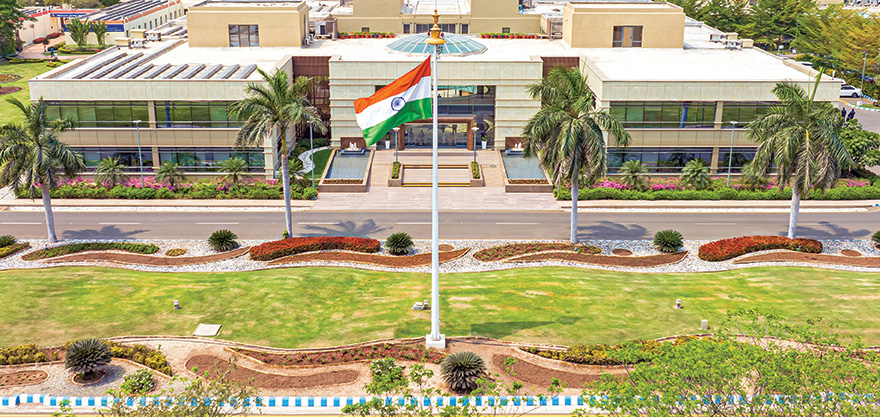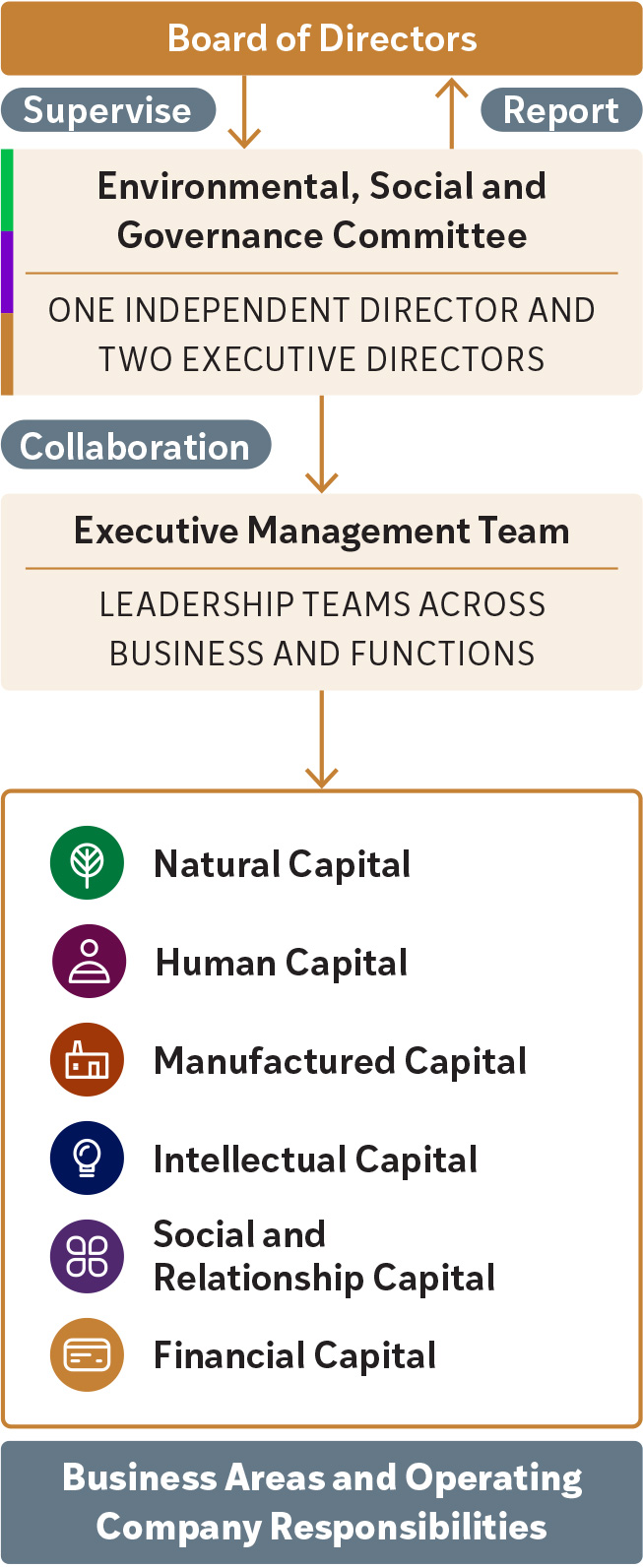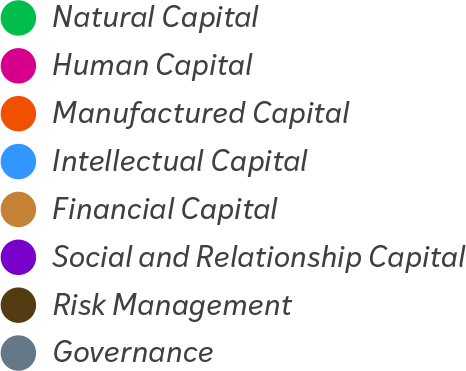Reliance stands firm in its commitment to robust governance, fortifying corporate citizenship and addressing environmental and social concerns. Guided by the principles of accountability, integrity and transparency, the Company considers governance as the key to its sustainable growth story.
Board Governance
The top leadership of Reliance comprises a 14-member Board that provides guidance and supervision to the Company. The Board of Directors consists of individuals with diverse backgrounds, specific skills, and experience. For information on the Board composition and diversity, kindly Read more of the report.
Board Oversight
To maintain a competitive edge and continue leading the way in the industry, Reliance consistently strives to manage its ESG aspects. The Company has established several Board Committees that are charged with overseeing specific ESG aspects of its operations. These committees include the Environmental, Social and Governance (ESG) Committee, Audit Committee, Corporate Social Responsibility and Governance Committee, Stakeholders Relationship Committee, and Risk Management Committee.
Sustainability Governance Framework
Reliance’s Board of Directors oversees the Company’s governance structure to ensure effective decision-making related to climate-related concerns. The governance framework provides a structured platform to develop and implement a thorough strategy to address climate change.

Sustainability Governance Structure

Environmental, Social and Governance Committee
The status of Reliance’s ESG activities is periodically assessed by the ESG Committee and the Board of Directors. This Committee, consisting of two executive directors and one independent director, is responsible for overseeing the Company’s ESG proposition. For information on the committee’s composition and meetings, please refer link of the report.
The ESG Committee in collaboration with the other Board Committees monitors ESG-related risks and implements strategies to mitigate them. In accordance with its Terms of Reference, the ESG Committee focused on the areas that Reliance deemed most strategically and operationally significant in FY 2023‑24. This approach allowed the Committee to oversee the Company’s performance and practices concerning safety, the environment (including climate change) and overall sustainability effectively and comprehensively. For further information on the Committee’s Terms of Reference, please refer to this link.
Reliance New Energy Council (NEC)
The Reliance New Energy Council (NEC) is composed of eight leading global experts in various fields, who convened for the NEC meeting 2023 spanning 4 days from April 2, 2023 to April 5, 2023. During this meeting, the NEC members reaffirmed Reliance’s new energy strategy, roadmap and risk mitigation plans necessary to achieve the ambitious target of Net Carbon Zero.
For more information on the profiles of NEC Members, please refer to this link.
Policies and Code
Reliance’s corporate governance framework relies on its policies and Code to fulfil its commitments to stakeholders. Both employees and directors follow the policies and Code to ensure ethical business practices and legal compliance. The Company’s key values – Customer Value, Ownership Mindset, Respect, Integrity, One Team and Excellence – are reflected in the Code. The Code reflects the Company’s values, and Senior Management and Directors confirm yearly adherence to them.
To access RIL ESG policies, please refer https:// www.ril.com/investors/shareholders-information/ policies
Anti-Competitive Behaviour
Reliance upholds competition through product and service quality and pricing and its firm commitment to sustainability. The Company encourages fair and ethical transactions among competitors without interference. It acquires competitive information only through legal and ethical means, such as public domain data, published news articles and press releases. Moreover, all employees are expected to understand and comply with competition law principles. No new cases of unfair trade practices or anti-competitive behaviour were detected in FY 2023‑24.
Stakeholder Engagement
Reliance has always focused on creating value for stakeholders and maintains transparent engagement to address their concerns. The Company ensures ongoing collaboration with key stakeholders, leading to growth, innovation and exploration of new paths to success.
For more details about the Company’s stakeholder engagement, please refer Principle 4 of the BRSR Report
Managing the Material Topics
At Reliance, addressing stakeholder concerns and fostering sustainable value is paramount. The Company identifies its material topics by considering the needs and priorities of its stakeholders, along with assessing business risks and opportunities.
These material topics then influence its risk management approach and strategy to create value in the short, medium and long term.
Approach to Materiality
RIL regularly evaluates material topics through stakeholder engagement and materiality assessment. The Company conducted a materiality assessment during FY 2021-22. Each potential material issue was analysed in detail, considering the inputs from both internal and external stakeholder groups. The results of materiality assessment were reviewed and approved by the Executive Board. Further, the Company also adopted a ‘Double Materiality’ lens to recognise the impact of material topics holistically.
More detail about the approach and prioritisation of material topics can be found on Read more of the Integrated Annual Report 2022-23.
Our Material Topics
-
1
Climate Change
-
2
Managing Environmental Impacts
-
3
Energy Efficiency of Operations
-
4
Water and Effluent Management
-
5
Raw Material Security
-
6
Ecosystem and Biodiversity
-
7
Innovation and Technology
-
8
Waste Management and Circular Economy
-
9
Sustainable Supply Chain Management
-
10
Disaster Preparedness and Management
-
11
Health, Safety and Employee Well-being
-
12
Diversity and Inclusion
-
13
Customer Satisfaction
-
14
Data Privacy and Cybersecurity
-
15
Security and Asset Management
-
16
Talent Management
-
17
Community Development
-
18
Labour Management


























